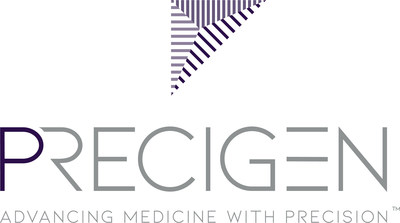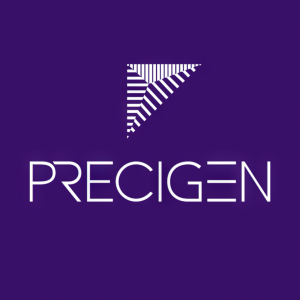Precigen Provides Pipeline Updates at the 39th Annual J.P. Morgan Healthcare Conference
On January 13, 2021, Precigen (Nasdaq: PGEN) presented its clinical achievements and goals at the 39th Annual J.P. Morgan Healthcare Conference. Highlights included updates on PRGN-3005 and PRGN-3006 UltraCAR-T, alongside the new UltraCAR-T library approach aimed at personalized cancer therapies. Preliminary data from the Phase I/II study of PRGN-2009 for treating HPV-associated cancers was shared, indicating a strong immune response in patients. The company also announced advancements in other AdenoVerse immunotherapies targeting RRP and HBV, emphasizing its commitment to innovative therapies amidst COVID-19 challenges.
- Introduction of UltraCAR-T library approach for personalized cancer therapies.
- Preliminary data showed strong immune response in PRGN-2009 study for HPV-associated cancers.
- Successful completion of enrollment in Phase I monotherapy arm for PRGN-2009.
- Advancements in various AdenoVerse immunotherapies suggest a robust pipeline.
- None.
Insights
Analyzing...
GERMANTOWN, Md., Jan. 13, 2021 /PRNewswire/ -- Precigen, Inc. (Nasdaq: PGEN), a biopharmaceutical company specializing in the development of innovative gene and cell therapies to improve the lives of patients, today presented clinical and preclinical updates at the 39th Annual J.P. Morgan Healthcare Conference. Helen Sabzevari, PhD, President and CEO of Precigen, presented a summary of 2020 clinical achievements and set forth Precigen's clinical goals for 2021.
In addition to reviewing the latest clinical updates for Precigen's PRGN-3005 UltraCAR-T, PRGN-3006 UltraCAR-T, AG019 ActoBiotics™, the presentation included the following additional announcements:
- UltraCAR-T Library Approach: Precigen introduced the Company's vision for a new UltraCAR-T library approach to transform the personalized cell therapy landscape for cancer patients. Precigen's goal is to develop and validate a library of non-viral plasmids to target tumor-associated antigens. Enabled by design and manufacturing advantages of UltraCAR-T, coupled with the capabilities of the UltraPorator™ system, Precigen is working to empower cancer centers to deliver personalized, autologous UltraCAR-T treatment with overnight manufacturing to any cancer patient. Based on the patient's cancer indication and biomarker profile, one or more non-viral plasmids would be selected from the library to build a personalized UltraCAR-T treatment. After initial treatment, this approach has the potential to allow for redosing of UltraCAR-T targeting the same or new tumor-associated antigen(s) based on the treatment response and the changes in antigen expression of the patient's tumor. Precigen believes that the combination of the advanced UltraVector® DNA construction platform and the ease of overnight manufacturing gives this library approach a proprietary advantage over traditional T-cell therapies.
- PRGN-2009 AdenoVerse Immunotherapy in HPV-associated Cancers: For the first time, Precigen provided preliminary data for the ongoing Phase I/II study of the first-in-class PRGN-2009 AdenoVerse immunotherapy to treat HPV-positive (HPV+) solid tumors. The Phase I study is evaluating safety and response of PRGN-2009 alone (Arm A) and in combination with bintrafusp alfa, an investigational bifunctional fusion protein, (Arm B) in patients with HPV-associated cancers under a Cooperative Research and Development Agreement (CRADA) with the National Cancer Institute (NCI).
- PRGN-2009 differentiation: PRGN-2009 leverages Precigen's UltraVector and AdenoVerse platforms to optimize HPV 16/18 antigen design for delivery via a proprietary gorilla adenovector with a large genetic payload capacity and the ability for repeat administrations.
- Preclinical activity: Preclinical studies show that PRGN-2009 treatment induced a strong HPV-specific immune response and anti-tumor response in a syngeneic mouse model of HPV+ cancer.
- Addressable patient population: HPV infections account for
5% of all cancers globally1 and 690,000 new cancer cases are attributable to HPV infections per year.2 - Enrollment: Enrollment in the Phase I monotherapy dose escalation arm (Arm A) is complete and enrollment in the Phase I combination arm (Arm B) has initiated.
- Clinical activity: All patients (N=6) enrolled in the Phase I monotherapy arm (Arm A) have received multiple PRGN-2009 administrations to date and repeated administration of PRGN-2009 treatment has been well-tolerated with no dose-limiting toxicities.
- Preliminary correlative analysis of peripheral blood mononuclear cells (PBMC) from patients treated at Dose Level 1 demonstrated an increase in HPV 16 and/or HPV 18-specific T-cell response post PRGN-2009 administration in
100% (3 out of 3) of patients; and - An increase in magnitude and breadth of immune response has been shown with respect to repeat administration of PRGN-2009.
- Preclinical data for two new AdenoVerse immunotherapies:
- PRGN-2012 AdenoVerse Immunotherapy in Recurrent Respiratory Papillomatosis (RRP): Precigen presented data from preclinical studies in which PRGN-2012 was shown to induce robust HPV 6 and HPV 11-specific T-cell response in RRP patient samples in vitro. Precigen recently announced that the US Food and Drug Administration (FDA) cleared the Investigational New Drug (IND) application to initiate the Phase I clinical trial of PRGN-2012 AdenoVerse immunotherapy in adult patients with recurrent respiratory papillomatosis (RRP).
- PRGN-2013 AdenoVerse Immunotherapy in Hepatitis B Virus (HBV) Infection: Precigen shared preclinical data for PRGN-2013, which incorporates novel HBV antigen design in a proprietary gorilla adenovector, which showed that PRGN-2013 induces superior cytotoxic T-cell response against more HBV epitopes in mice than a competitor vaccine candidate and decreases plasma levels of HBsAg, the key marker of chronic HBV infection.
"In spite of the challenges presented by the COVID-19 pandemic, Precigen has accomplished all of the clinical milestones we set for ourselves in 2020," said Helen Sabzevari, PhD, President and CEO of Precigen, "I am proud of the team and collaborators for their commitment and execution during this challenging time which made possible the continued advancement of our differentiated therapeutics aimed at benefiting patients with severe unmet needs."
Precigen's J.P. Morgan presentation is available on the Company website in the Events & Presentations section at investors.precigen.com/events-presentations.
Precigen: Advancing Medicine with Precision™
Precigen (Nasdaq: PGEN) is a dedicated discovery and clinical stage biopharmaceutical company advancing the next generation of gene and cell therapies using precision technology to target the most urgent and intractable diseases in our core therapeutic areas of immuno-oncology, autoimmune disorders, and infectious diseases. Our technologies enable us to find innovative solutions for affordable biotherapeutics in a controlled manner. Precigen operates as an innovation engine progressing a preclinical and clinical pipeline of well-differentiated unique therapies toward clinical proof-of-concept and commercialization. For more information about Precigen, visit www.precigen.com or follow us on Twitter @Precigen and LinkedIn.
Trademarks
Precigen, Advancing Medicine with Precision, UltraCAR-T, AdenoVerse, UltraVector, UltraPorator and ActoBiotics are trademarks of Precigen and/or its affiliates. Other names may be trademarks of their respective owners.
Cautionary Statement Regarding Forward-Looking Statements
Some of the statements made in this press release are forward-looking statements. These forward-looking statements are based upon the Company's current expectations and projections about future events and generally relate to plans, objectives, and expectations for the development of the Company's business, including the timing and progress of preclinical studies, clinical trials, discovery programs and related milestones, the promise of the Company's portfolio of therapies, and in particular its CAR-T and AdenoVerse therapies. Although management believes that the plans and objectives reflected in or suggested by these forward-looking statements are reasonable, all forward-looking statements involve risks and uncertainties, including the possibility that the timeline for the Company's clinical trials might be impacted by the COVID-19 pandemic, and actual future results may be materially different from the plans, objectives and expectations expressed in this press release. The Company has no obligation to provide any updates to these forward-looking statements even if its expectations change. All forward-looking statements are expressly qualified in their entirety by this cautionary statement. For further information on potential risks and uncertainties, and other important factors, any of which could cause the Company's actual results to differ from those contained in the forward-looking statements, see the section entitled "Risk Factors" in the Company's most recent Annual Report on Form 10-K and subsequent reports filed with the Securities and Exchange Commission.
About HPV-associated Cancers
HPV infects the squamous cells that line the inner surfaces of certain organs and, consequently, most HPV-related cancers are a type of cancer called squamous cell carcinoma. Some cervical cancers come from HPV infection of gland cells in the cervix and are referred to as adenocarcinomas.1 HPV-related cancers include cervical, oropharyngeal, anal, penile, vaginal, and vulvar.1 Nearly 44,000 HPV-associated cancers occur in the United States each year. Of these, approximately 25,000 occur in women and 19,000 occur in men.2 HPV is considered responsible for more than
About Recurrent Respiratory Papillomatosis (RRP)
Recurrent respiratory papillomatosis (RRP) is a rare, difficult-to-treat and sometimes fatal neoplastic disease of the upper and lower respiratory tracts that is caused by infection with HPV 6 or HPV 11.3-6 RRP is classified based on age of onset as juvenile or adult. Juvenile-onset disease has an incidence of 4 per 100,000 and adult-onset RRP has an incidence of 2 to 3 per 100,000. There is no cure for RRP and the current standard-of-care is repeated endoscopic debulking with ablation or excision of papillomatous lesions.5,6 Recurrence of papilloma after surgical removal is very common and repeated procedures are required to debulk and monitor the disease, which exposes patients to anesthetic and surgical risks, and emotional distress. RRP morbidity and mortality results from the effects of papilloma mass on the vocal cords, trachea, and lungs, which may cause voice changes, stridor, airway occlusion, loss of lung volume, and/or post-obstructive pneumonia.7 Although rare, one to three percent of RRP cases can transform into invasive squamous cell carcinoma.8,9
About Hepatitis B
Hepatitis B is a vaccine-preventable liver infection caused by the hepatitis B virus (HBV). Chronic HBV infection can cause serious health problems, including liver damage, cirrhosis, liver cancer, and death.10 Liver infection caused by HBV may lead to chronic infection and hepatocellular carcinoma (HCC).11 There is currently no cure for chronic HBV infection. The global prevalence of HBV is 257 million12 and there is a US prevalence of 850,000.10
References
1 HPV and Cancer, National Institutes of Health
2 HPV-Associated Cancer Statistics, Centers for Disease Control and Prevention
3 Mounts, P et al. (1982). "Viral etiology of juvenile- and adult-onset squamous papilloma of the larynx." Proc Natl Acad Sci U S A 79(17): 5425-5429
4 Smith, E et al. (1993). "Human papillomavirus infection in papillomas and nondiseased respiratory sites of patients with recurrent respiratory papillomatosis using the polymerase chain reaction." Arch Otolaryngol Head Neck Surg 119(5): 554-557
5 Derkay, CS et al. (2008). "Recurrent respiratory papillomatosis: a review." Laryngoscope 118(7): 1236-1247
6 Derkay, CS et al. (2019). "Update on Recurrent Respiratory Papillomatosis." Otolaryngol Clin North Am 52(4): 669-679
7 Seedat, RY (2020). "Juvenile-Onset Recurrent Respiratory Papillomatosis Diagnosis and Management - A Developing Country Review." Pediatric Health Med Ther 11: 39-46.
8 Dedo, HH et al. (2001). "CO(2) laser treatment in 244 patients with respiratory papillomas." Laryngoscope 111(9): 1639-1644
9 Silver, RD et al. (2003). "Diagnosis and management of pulmonary metastasis from recurrent respiratory papillomatosis." Otolaryngol Head Neck Surg 129(6): 622-629
10 Hepatitis B Questions and Answers for the Public, US Centers for Disease Control and Prevention
11 Xie Y., (2017). "Hepatitis B Virus-Associated Hepatocellular Carcinoma." Adv Exp Med Biol
12 Hepatitis B, World Health Organization
Investor Contact: | Media Contact: |
Steven Harasym | Glenn Silver |
Vice President, Investor Relations | Lazar-FINN Partners |
Tel: +1 (301) 556-9850 | |
![]() View original content to download multimedia:http://www.prnewswire.com/news-releases/precigen-provides-pipeline-updates-at-the-39th-annual-jp-morgan-healthcare-conference-301207917.html
View original content to download multimedia:http://www.prnewswire.com/news-releases/precigen-provides-pipeline-updates-at-the-39th-annual-jp-morgan-healthcare-conference-301207917.html
SOURCE Precigen, Inc.








